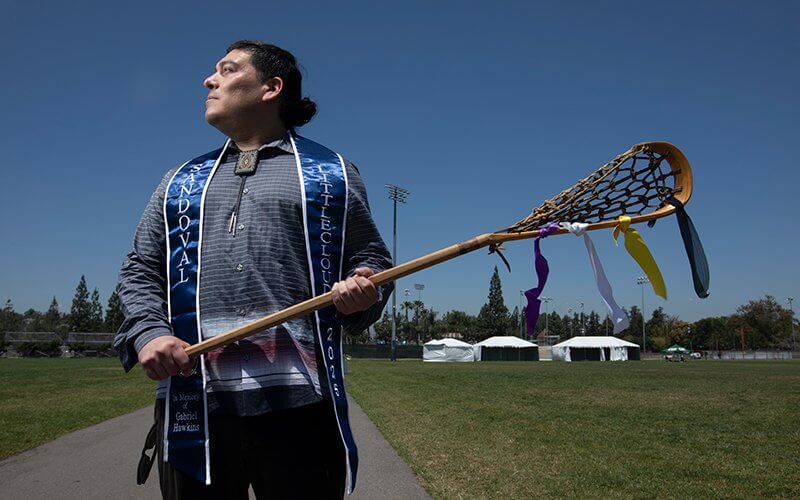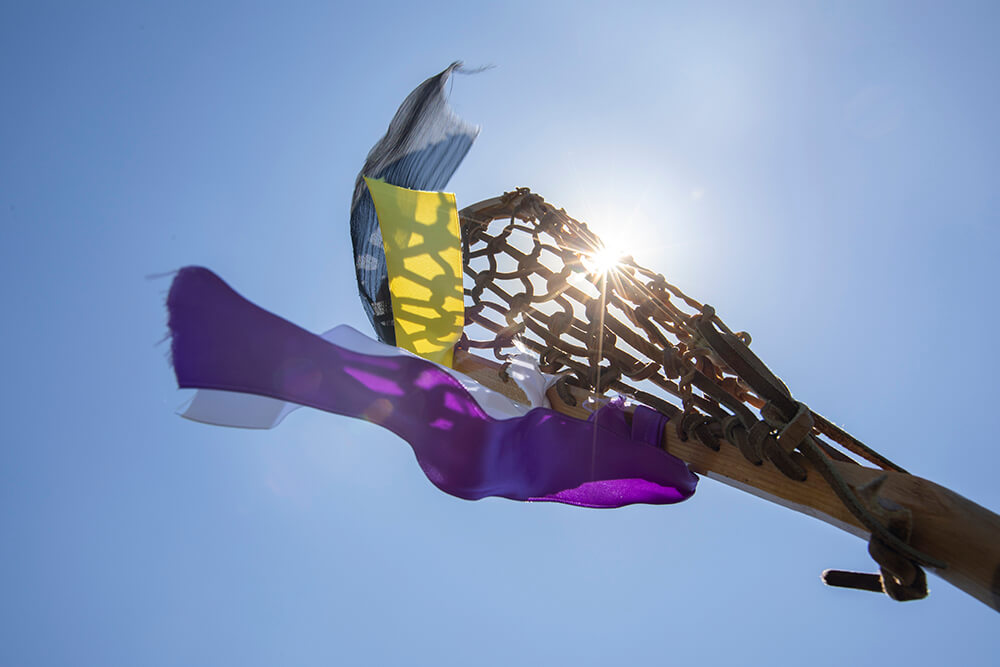
For the first time in more than a century, lacrosse will return to the global stage during the Los Angeles 2028 Olympics, and Cal State Fullerton student researcher Erik Sandoval couldn’t be more excited.
In the last five years, the popularity of the sport has rocketed to new heights. According to data from World Lacrosse, there are approximately 1.1 million registered lacrosse athletes worldwide with more than 1,500 collegiate teams and 35 professional leagues globally.
As the world celebrates lacrosse’s return to the Olympic Games, Sandoval is channeling his passion for the sport into a research project that uncovers the history of lacrosse and its connection to Native and Indigenous culture.
“A lot of people who play or watch lacrosse don’t know about its origin story. It’s often perceived as a non-inclusive and expensive sport, but there’s more to it. It’s a Native American sport that is rooted in community,” said Sandoval, a Class of 2025 grad who is pursuing his degree in communication studies.
Sandoval interviewed and surveyed lacrosse players from various tribes across the country. He spoke to teams within the Haudenosaunee Confederacy, a group of six nations in North America currently campaigning to compete in lacrosse at the 2028 Olympic Games under its own flag.
“For the Haudenosaunee tribe, lacrosse was a medicine game,” said Sandoval. “It was a way to help them avoid war with other Native tribes, relax the mind, play with a clean heart, and build community because a big part of Indigenous and Native American culture is collectivism and being together.”

Sandoval added that for many Native and Indigenous athletes, lacrosse is a way of life that’s woven into their identities: “When male babies are born, they are given a wooden lacrosse stick that they carry throughout their lifetime. When they die, they are buried with that stick because they are now able to play with their ancestors.”
For his academic excellence and innovation in sports studies, Sandoval was recognized with the Positive Change Scholarship. This award was created by Tara Suwinyattichaiporn, associate professor of human communication studies, to support student researchers.
“Erik is doing such valuable work, and I am honored to have contributed, even partially, to him working toward his dream and improving his community. I trust that he will continue to create positive change everywhere he goes,” said Suwinyattichaiporn.
With support from Zac Johnson, chair and professor of human communication studies, Sandoval presented his research at the 2025 Eastern Communication Association convention and was recognized with a Top Paper Award.
Johnson said the award was a testament to the research skills that Sandoval has developed throughout his undergraduate career: “Often when researchers are confronted with the realities of collecting data, such as low response rates, they lose interest. Erik was the exception. He worked tirelessly on this project.”
Inspired to continue this work, Sandoval will pursue his master’s degree in communication studies at CSUF in the fall. He aspires to a career as a professor and sports researcher.
“Being Chicano and Diné myself, it’s been such a great experience to conduct research from a Native and Indigenous standpoint,” he said. “I came to college searching for what I am passionate about, and I found it through research.”